Mild artist, silly youtuber, and aspiring author.Art and story bits are put here and on twitter.Finished/developing stories are put on ao3, go check em out when they're up!
Don't wanna be here? Send us removal request.
Text
i first heard about silksong on the bus in middle school and im in college now but im not giving up hope itll be soon trust
3 notes
·
View notes
Text
Buying a Luigi hat when I get money
snort...

39K notes
·
View notes
Photo
Not me getting loss memes from nine years ago

memeception
763K notes
·
View notes
Text
what the sig-ma
i just remembered the scariest image ive ever made do you guys want to see it
54 notes
·
View notes
Text
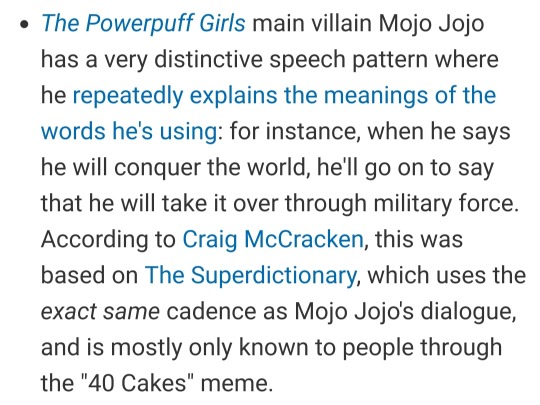
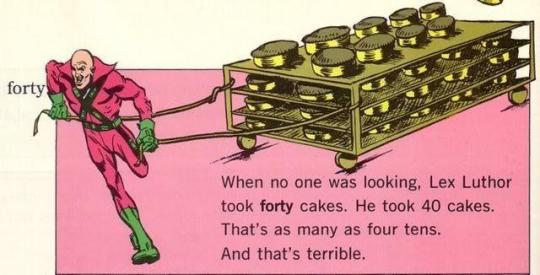
What
189K notes
·
View notes
Text
"I know you're reading this message. We both know who you are."
"I will skip over any introduction, as none are necessary."
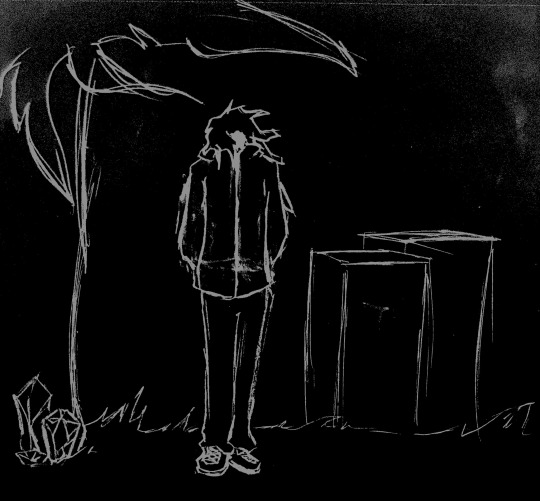
"I am cutting contact with you. Nobody BUT you."
"I am keeping the iteration of your beast. Removal of it from its new home will do more damage than the act will fix. In exchange you may keep the iteration of my son, if you even plan on utilizing it anymore."
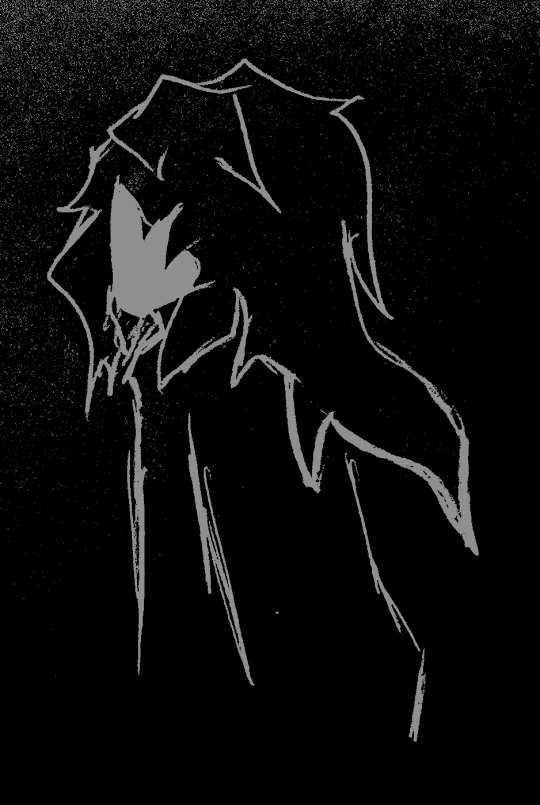
"I will keep the inspiration you have given me. You will not stop me, as you have lost that right. Just as you no longer need me to play jester, I no longer need you to feed me empty words."
"To those you will no doubt share this message with, they are not at fault for my departure. They may contact me. However, I politely ask them to refrain from letting you speak through them, but if the need arises, they may."
"If there is anyone to blame, it is you."
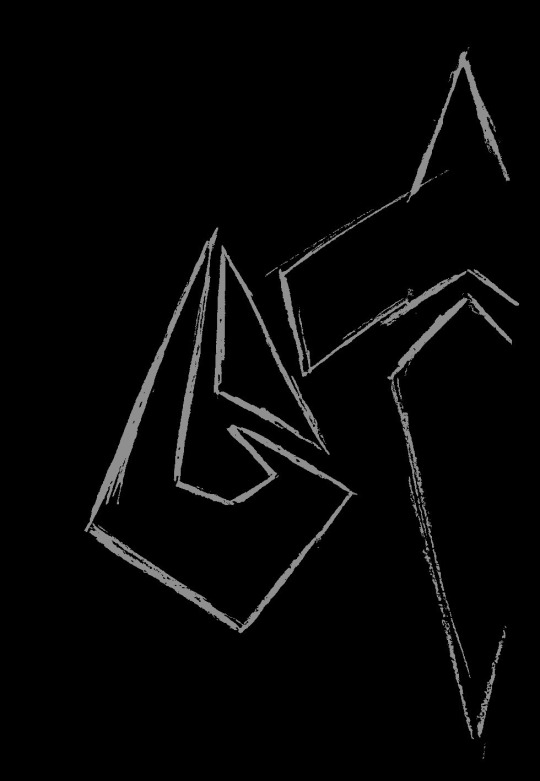
"I leave you with not a warning, but a promise."
"Do not dare to leave behind any of those you have befriended as you have done to myself. Choose to disregard my words, and you will eventually lose the one closest to you."
"It does not matter to me what path you choose to travel. My work continues, as it always will. With or without your interference."
"To those few who see this, and are unrelated to the subject of this message, know something is coming. Something much larger and grand than the work I have shared. Something separate, yet not quite."
"This project will take a long time to complete, perhaps years, but I believe it will be well worth the wait."
2 notes
·
View notes
Text

"Boundless"
Happy new year everyone!
6 notes
·
View notes
Text
"You can now play as Luigi" hits so hard it transcends comprehension





A Bug’s Life, 1998
84K notes
·
View notes
Text
Commission for Quill on discord

304 notes
·
View notes
Text

216 notes
·
View notes
Text
I'm seeing people go "TCO this" and "DL" that. I don't care about those two. They're fine in my opinion. My hatred isn't for them, but for ALAN.
Victim's life began in early June, and he escaped Alan's laptop in late March. That's nearly ten months. In that time, Victim was subject to almost ceaseless torture.




Ten months of agony. To Victim it probably felt like an eternity since he probably had no proper concept of time given how often he was killed.
And Alan took JOY in this. He would play with and kill Victim slowly. Agonizingly slowly. Purposefully.


He took pleasure in watching Victim suffer. Instead of doing something else, maybe play a game on his computer, he toyed with him. It's emphasized this was a daily thing or at least constant to an overwhelming degree, given how the video emphasizes the months going by.
I'd also like to point out the duration of all this.
Ten months. Ten straight months of abusing this stick figure.
We even get a glimpse of Alan in the real world, on his floor in his room. His expression looks to be a mix of anger or frustration. But there's no hint of satisfaction or even a smile. He looks bored. Tired, even.

Maybe in the beginning Alan did what he did for his amusement. Not anymore. He does this because it's habit, or something to pass the time. It's something he does for the sole sake of doing.
And still he prods at Victim, trying to get some reaction. He only leaves because of his call to join dinner.
When Victim flees the laptop, it cuts away from Alan. I can only assume he made another stick figure to toy with to pass the time.
Eventually he creates the Chosen One and asks a friend for help. Given he knows someone that knows about the intricacies of living stick figures, that proves Alan knows they are self aware. Then he created the Dark Lord, and the two escape to cause havoc.
This leads to Mitzi being destroyed, giving Victim more trauma and grief.
Later Alan makes the Second Coming. The ONLY reason he is kept alive is because he's useful to him. TSC helps Alan draw, and in turn TSC can live.
My conclusion: Alan is the one to blame, to point fingers at. Alan is sick and twisted, and he's don't nothing for any of his creations save for giving TSC a life to live, and even that is dubious at best.
Alan had no remorse for his actions. He didn't care what he was doing to his creations.
Alan tortured and abused Victim because he could.
Doing something so heinous for the sole purpose of doing it because you can is the most evil thing a person could do.
TCO is not the bad guy. ALAN is.
164 notes
·
View notes
Text
Step. Step. Step.
Wind billowed through its torn wings, rustling the many bent feathers that stuck out like barbs. Dirt and dust wove its way through the layers of feathers, clumping and matting together to form an uncomfortable weight that dragged the wings down across the ground.
Step. Step. Step. Step, step. Step.
The wind kicked up suddenly, nearly blowing him backward. He regained his footing, blindly continuing forward like nothing happened. The feathers and strands of hair sticking out from under his mask whipped in the wind, bits of gray strands breaking away and carried out of view.
Step. Step. Step.
A lamp slowly passed by as he trudged onward, attached to a bit of stone brick ruin jutting from the ground. The lumafly within fluttered randomly in its glass cage, ignorant to the world outside. It envied the speck of light, wishing it could have taken its place.
Step. Step. Step. Step.
It moved onward, leaving the tiny creature to its cage. It refused to think about the lumafly or his longing to replace it. It proceeded to count its steps again, slowly forgetting about the lumafly and its lamp.
Step. Step. Step. Step. Step...
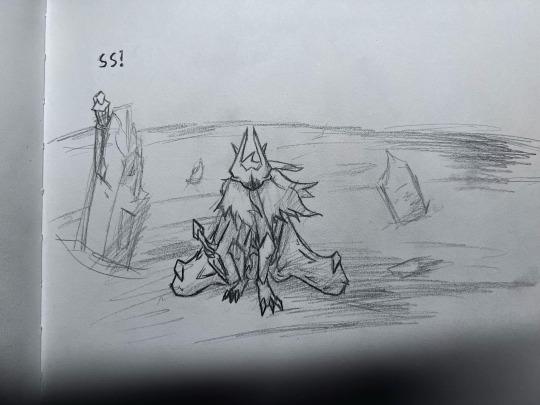
2 notes
·
View notes
Text
Uhhhhhhhhhhh yes. Guy, he's cool. Not insane, trust me bro
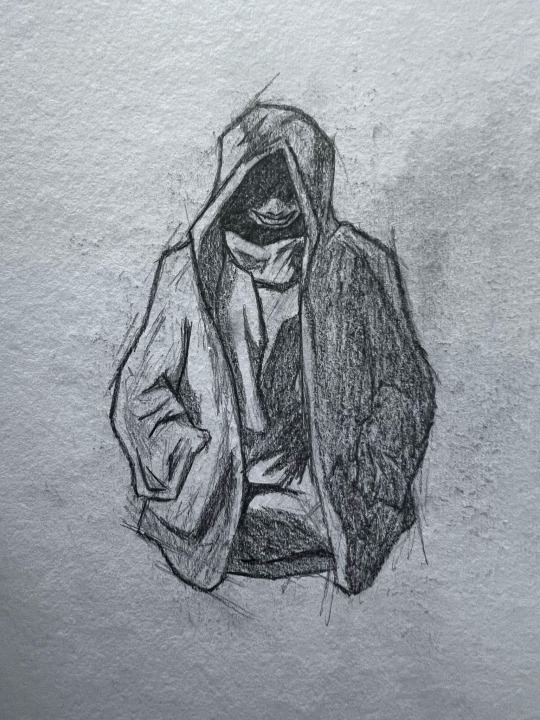
3 notes
·
View notes
Note
Please tell me I'm not the only one who can relate to Sig
Ah, to know what it would take sigh to allow us to press a soft kiss to his forehead
But alas, that's a wish that'll never come true

Pfft
63 notes
·
View notes
Text
120 ULTIMATE LIST OF CHARACTER FLAWS. Writers save this!
1. Moral Flexibility - Adapts their ethics to fit the situation, often justifying questionable actions as necessary.
2. Cognitive Dissonance - Holds two conflicting beliefs or values and struggles to reconcile them, leading to inner turmoil.
3. Overempathy - Feels others’ emotions too intensely, leading to burnout or an inability to make objective decisions.
4. Intellectual Arrogance - Dismisses others’ ideas as inferior, believing their own intellect is superior.
5. Chronic Overthinking - Analyzes situations to the point of paralysis, unable to take decisive action.
6. Restless Wanderlust - Has a constant desire for change or travel, leading to instability in relationships or careers.
7. Savior Complex - Feels compelled to “save” others, often to the detriment of their own well-being or others’ autonomy.
8. Emotional Vampirism - Drains others emotionally, needing constant validation or attention.
9. Righteous Indignation - Becomes excessively angry over perceived injustices, often alienating others.
10. Altruistic Self-Destruction - Sacrifices themselves for others to an unhealthy degree, often leading to self-neglect.
11. Pathological Modesty - Downplays their own achievements to the point of self-sabotage or invisibility.
12. Incapable of Solitude - Feels an intense fear of being alone, leading to codependent or unhealthy relationships.
13. Over-Rationalization - Justifies every action or decision, even when it’s clearly flawed, to avoid guilt or responsibility.
14. Constant Self-Sabotage - Subconsciously undermines their own success due to deep-seated fears or insecurities.
15. Misplaced Loyalty - Stays loyal to people or causes even when it’s harmful or undeserved.
16. Ethical Rigidity - Follows their moral code to the letter, unable to adapt to complex or gray situations.
17. Need for Obscurity - Prefers to stay unnoticed or in the background, avoiding recognition or responsibility.
18. Involuntary Aloofness - Appears distant or disinterested, often without meaning to, leading to misunderstandings.
19. Fear of Mediocrity - Terrified of being ordinary, they constantly strive for greatness, often leading to burnout.
20. Rejection Sensitivity - Overreacts to criticism or perceived slights, often withdrawing or lashing out.
21. Conflict Avoidance - Avoids confrontation at all costs, leading to unresolved issues and resentment.
22. Over-idealization of Others - Puts people on pedestals, only to be deeply disappointed when they don’t meet expectations.
23. Chronically Unfulfilled - No matter what they achieve, they always feel something is missing, leading to constant searching.
24. Compulsive Truth-Telling - Feels compelled to speak the truth, even when it would be kinder or wiser to remain silent.
25. Overactive Imagination - Sees threats or possibilities where there are none, leading to anxiety or missed opportunities.
26. Faux Humility - Pretends to be humble but secretly craves admiration or validation.
27. Micromanagement - Needs to control every detail, often suffocating others or hindering their own progress.
28. Anachronistic Thinking - Clings to outdated beliefs or practices, struggling to adapt to modern realities.
29. Over-Reliance on Routine - Becomes anxious or lost without their routines, struggling to adapt to change.
30. Selective Memory - Remembers events in a way that suits their narrative, often distorting the truth.
31. Paradoxical Fear of Success - Desires success but subconsciously fears the changes or responsibilities it might bring.
32. Compassion Fatigue - Once empathetic, now numbed or indifferent due to overwhelming exposure to others’ suffering.
33. Overwhelming Nostalgia - Lives in the past, unable to move forward or appreciate the present.
34. Unyielding Perfectionism - So focused on flawlessness that they struggle to complete tasks or accept anything less than perfect.
35. Epistemic Arrogance - Believes they know everything worth knowing, dismissing the possibility of learning from others.
36. Excessive Hedonism - Pursues pleasure to the point of neglecting responsibilities or moral considerations.
37. Over-Cautiousness - So afraid of making mistakes that they rarely take action, leading to missed opportunities.
38. Idealistic Naivety - Believes the world should operate according to their ideals, often clashing with reality.
39. Ambition without Direction - Desires greatness but has no clear path or plan, leading to frustration and failure.
40. Emotional Transference - Projects unresolved emotions onto others, often misinterpreting their intentions or actions.
41. Overdependence on Routine - Becomes anxious or lost without their routines, struggling to adapt to change.
42. Misplaced Guilt - Feels responsible for things outside of their control, leading to unnecessary self-blame.
43. Fear of Being Ordinary - Constantly strives to stand out, often at the expense of authenticity or well-being.
44. Chronic Indecisiveness - Struggles to make even simple decisions, constantly second-guessing themselves.
45. Faux Cynicism - Pretends to be jaded or cynical as a defense mechanism, while secretly caring deeply.
46. Romanticization of Suffering - Believes that suffering is noble or meaningful, often rejecting happiness or comfort.
47. Selective Compassion - Empathetic towards some but completely indifferent or cold to others, often based on biases.
48. Avoidant Optimism - Avoids negative thoughts or situations, clinging to an unrealistic positivity that ignores real problems.
49. Fear of Abandonment - Clings to relationships out of fear of being left alone, often leading to unhealthy dynamics.
50. Overidentification with Work - Sees their job as their entire identity, struggling with self-worth outside of work.
51. Excessive Altruism - Sacrifices their own needs to help others, often to their own detriment.
52. Self-Imposed Isolation - Withdraws from others out of fear of rejection or misunderstanding, leading to loneliness.
53. Over-Analysis Paralysis - Overthinks every situation to the point of being unable to make decisions or take action.
54. Eternal Romantic - Sees the world through a lens of idealized love, often leading to disillusionment or heartbreak.
55. Emotional Incontinence - Struggles to control their emotions, often overwhelming others with their intensity.
56. Fear of Aging - Obsessed with youth, they go to great lengths to deny or hide the aging process.
57. Intellectual Cowardice - Avoids challenging their own beliefs or ideas, sticking to what they know out of fear of change.
58. Emotional Hoarding - Holds onto past hurts or grudges, unable to let go and move on.
59. Unquenchable Curiosity - Always needs to knw more, often prying into others’ lives or crossing boundaries.
60. Romantic Escapism - Uses fantasy or daydreams as a way to avoid dealing with reality, leading to detachment.
61. Masochistic Tendencies - Deliberately seeks out situations that cause them pain or discomfort, believing they deserve it.
62. Incurable Wanderer - Can never settle down, always moving on to the next place or experience, leading to rootlessness.
63. Dependency on Validation - Needs constant approval or praise from others to feel good about themselves.
64. Constant Self-Reinvention - Continuously changes their identity or persona, never settling on who they truly are.
65. Moral Masochism - Finds satisfaction in self-punishment or guilt, often holding themselves to impossible standards.
66. Faux Bravado - Pretends to be fearless or confident to hide deep-seated insecurities or fears.
67. Over-romanticization of the Past - Idealizes past experiences, believing that things were better back then, leading to dissatisfaction with the present.
68. Chronic Hedging - Never fully commits to decisions or actions, always leaving themselves an escape route.
69. Fear of Stagnation - Constantly needs to be doing something or moving forward, fearing they’ll become irrelevant or bored.
70. Over-Attachment to Objects - Places excessive sentimental value on material possessions, struggling to let go.
71. Emotional Stoicism - Refuses to show or acknowledge emotions, leading to repression and eventual breakdowns.
72. Self-Flagellation - Constantly punishes themselves for perceived failures or mistakes, often disproportionate to the actual events.
73. Fear of the Unknown - Terrified of what they can’t predict or control, leading to anxiety or avoidance of new experiences.
74. Romantic Pessimism - Believes that love or relationships are doomed to fail, leading to self-sabotage or cynicism.
75. Intellectual Purism - Believes in the superiority of “pure” intellectual pursuits, often dismissing practical or emotional concerns.
76. Existential Dread - Obsesses over the meaning (or lack thereof) of life, leading to paralysis or despair.
77. Involuntary Nonconformity- Desires to fit in but can’t help standing out or going against the grain, often feeling alienated.
78. Self-Imposed Martyrdom - Puts themselves in a position of suffering or sacrifice, believing it’s their duty or fate.
79. Idealized Self-Image - Clings to an unrealistic self-concept, struggling to accept their flaws or limitations.
80. Compulsive Honesty - Feels compelled to always tell the truth, even when it’s hurtful or inappropriate.
81. Over-Reliance on Technology - Becomes helpless without modern conveniences, struggling to cope with real-world challenges.
82. Moral Exhibitionism - Shows off their ethics or principles to gain admiration or moral superiority, often insincerely.
83. Perpetual Student Syndrome - Always learning but never applying knowledge, avoiding real-world responsibilities.
84. Emotional Osmosis - Absorbs others’ emotions so deeply that they lose track of their own feelings or needs.
85. Pathological Frugality - So obsessed with saving money or resources that they miss out on life’s joys or opportunities.
86. Obsessive Self-Improvement - Never satisfied with themselves, constantly striving for unattainable perfection.
87. False Modesty - Pretends to be humble while fishing for compliments or validation.
88. Uncontrolled Impulsiveness - Acts on whims or impulses without considering the consequences, leading to chaos or regret.
89. Chronic Hedonism - Lives only for pleasure, often to the detriment of their long-term happiness or relationships.
90. Overly Abstract Thinking - So focused on big ideas or concepts that they lose touch with reality or practical concerns.
91. Romantic Idealism - Believes in a perfect love or relationship, often leading to disappointment or disillusionment.
92. Selective Altruism - Only helps others when it suits them, often ignoring those who don’t fit their criteria.
93. Pathological Shyness - So shy or introverted that they struggle to function in social situations, often missing out on opportunities.
94. Moral Superiority - Believes they are more ethical or righteous than others, often looking down on those who don’t share their views.
95. Over-identification with a Role - Sees themselves only as their job, family role, or social identity, losing sight of their true self.
96. Chronic Complaining - Constantly finds something to complain about, often bringing others down or creating a negative atmosphere.
97. Faux Stoicism - Pretends to be emotionally strong or unaffected, while secretly struggling with deep emotional turmoil.
98. Addiction to Drama - Thrives on conflict or chaos, often creating drama where there is none to feel alive or important.
99. Obsessive Collecting - Gathers possessions, knowledge, or experiences obsessively, often unable to let go or move on.
100. Inflexible Optimism - Refuses to acknowledge negative possibilities, often unprepared for setbacks or challenges.
101. Contrarianism - Always takes the opposite stance just to challenge others, often without genuine conviction.
102. Emotional Projection - Attributes their own feelings or issues onto others, often leading to misunderstandings.
103. Compulsive Heroism - Feels the need to be seen as heroic or brave, even in situations that don’t call for it.
104. Spiritual Narcissism - Uses spirituality as a way to feel superior to others or to avoid personal flaws.
105. Self-Defeating Humor - Constantly makes jokes at their own expense, using humor to deflect serious issues.
106. Identity Fluidity - Frequently changes their identity or beliefs to fit in with different groups, losing a sense of true self.
107. Overattachment to the Past - Can’t move on from past successes or failures, allowing them to define their present.
108. Pseudointellectualism - Pretends to know more than they do, using complex language or ideas to impress others.
109. Overidealization of Youth - Places youth on a pedestal, often dismissing the value of experience or aging.
110. Refusal to Accept Help - Rejects assistance from others, believing they must do everything on their own, even to their detriment.
111. Emotional Manipulation - Uses guilt, pity, or other emotions to control or influence others, often without realizing it.
112. Inconsistent Values - Holds contradictory beliefs or morals, leading to confusion or hypocrisy in their actions.
113. Obsession with Legacy - So focused on how they’ll be remembered that they neglect the present or make unwise choices.
114. Excessive Eagerness to Please - Goes out of their way to make others happy, often at the cost of their own needs or principles.
115. Emotionally Guarded - Builds walls around their feelings, making it difficult for others to get close or understand them.
116. Selective Memory - Chooses to remember events in a way that favors them, often distorting the truth.
117. Overattachment to Authority - Relies heavily on rules or leaders, struggling to make decisions independently or question authority.
118. Fear of Vulnerability - Avoids showing weakness or asking for help, leading to isolation or burnout.
119. Intellectual Detachment - Approaches everything with cold logic, often ignoring the emotional or human side of situations.
120. Obsession with Control - Needs to control every aspect of their life and others’, often leading to stress or strained relationships.
BONUS🔥
CREATE YOUR CHARACTERS WITH DEPTH TODAY! Don't settle for shallow, forgettable characters—elevate your writing with the ultimate character worksheet.
This template isn't just about characters; it’s your all-in-one tool for worldbuilding, writer planning from idea generation to publishing, roadmaps, synced databases, and series planning. It’s the ultimate character and worldbuilding bible you’ve been waiting for.
Available now! Use code "F4NTASY" to get an incredible 75% off! This offer won’t last long, so grab yours now before it’s too late!





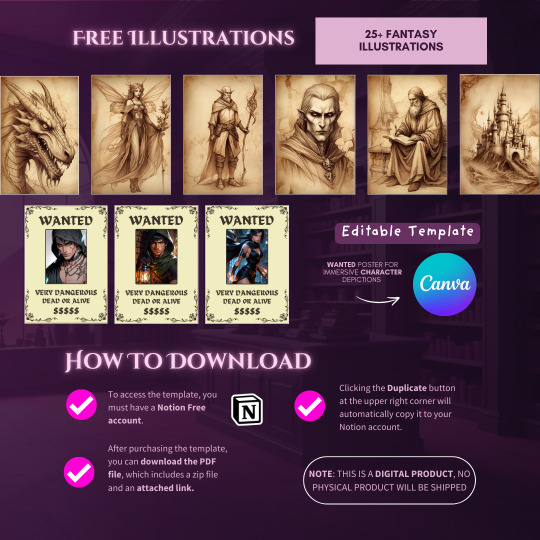
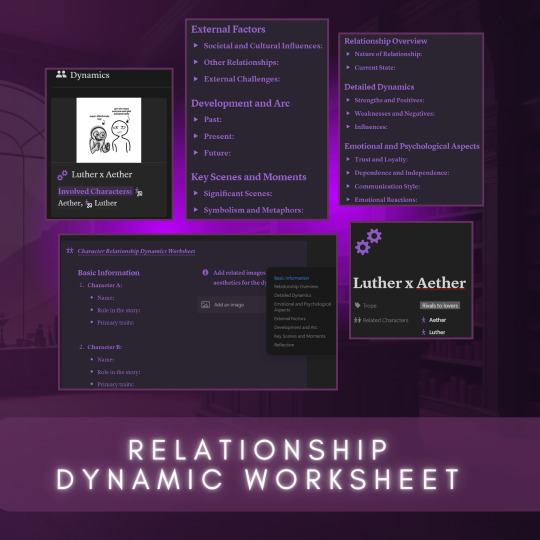
9K notes
·
View notes
